Huang, J., Nam, Y., Sherraden, M., & Clancy, M. M. (2019). Impacts of child development accounts on parenting practices: evidence from a randomised statewide experiment. Asia Pacific Journal of Social Work and Development, 29(1), 34–47. doi:10.1080/02185385.2019.1575270
Atlanta school of social work breaks new ground in financial capability practice
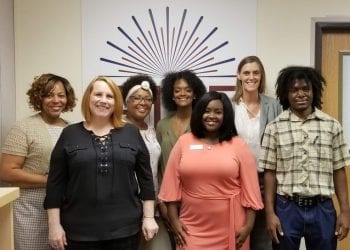
Clark Atlanta University has launched an internship program for MSW students built on the Center for Social Development’s pioneering work in Financial Capability and Asset Building.
Authors: Climate science must embrace social sciences and humanities for solutions

In “Five Dimensions of Climate Science Reductionism,” Jonathan Rigg and Lisa Reyes Mason assert that science tends to extract climate change from its social and environmental contexts, making climate change a “detached physical process.”
Brown School alumna receives lifetime achievement award in India
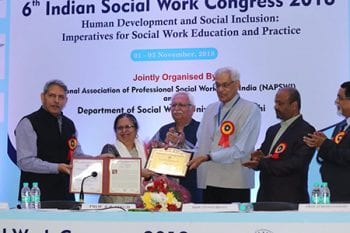
Murli Desai, a Brown School alumna, has received the Life Time Achievement Award from the National Association of Professional Social Workers in India.
CSD advises Azerbaijan officials on Child Development Account policy
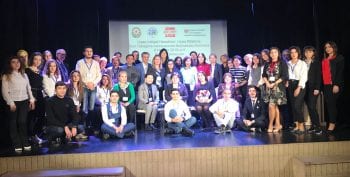
The Azerbaijan Minister of Labor and Social Protection Sahil Babayev and Social Policy and Services Department Head Himalay Mamishov met with Center for Social Development Director Michael Sherraden, International Director Li Zou and Research Associate Aytakin Huseynli.
University of Denver Grand Challenges event features Michael Sherraden
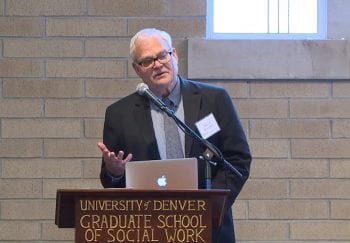
Michael Sherraden delivered the keynote address at the Grand Challenges for Social Work event “Economic Equality and Financial Capability” in October at the University of Denver’s Graduate School of Social Work.
Brown School celebrates Washington University Day at Xi’an Jiaotong University
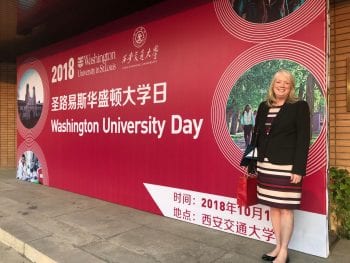
A delegation from Washington University in St. Louis including Brown School Dean Mary McKay and Center for Social Development leaders participated the celebration of Washington University Day at Xi’an Jiaotong University on October 15.
Prime minister speaks at launch of book on asset building policies
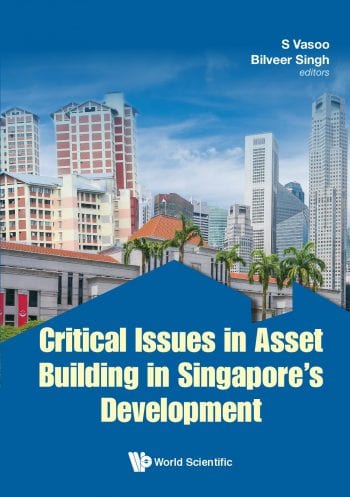
Singapore’s Prime Minister Lee Hsien Loong spoke at the August 24 launch of the book “Critical Issues in Asset Building in Singapore’s Development.” Professors S. Vasoo and Bilveer Singh at the National University of Singapore (NUS) edited the book. The lead chapter is by Michael Sherraden, director of the Center for Social Development at Washington University in St. Louis.
Financial Capability & Human Services Education

Financial Capability
We address the gap in professional FCAB training of social workers and other human service practitioners who serve low- and moderate-income households.
Corinne Ghoh

CSD Faculty Director; National University of Singapore
Sister Centers for Social Development: Research and Action
2015 Media
Banking on small payments to help induce NJ kids to pursue higher educationNJ Spotlight, Dec. 16, 2015 5 reasons to consider college savings as a giftU.S. News & World Report, Dec. 16, 2015 Will $50 prompt a family to save for college?St. Louis Post-Dispatch, Dec. 13, 2015 Parking tickets help send kids to collegeSt. Louis […]
2017 Media
Brown School program helps minority students feel welcomeRecord, November 30, 2017 Washington University in St. Louis researchers explore a rising trend of employer-based employee financial wellness programsBadCredit.Org, November 28, 2017 Bouncing Between Homes: Hypermobility and its impact on children’s education and communities at largeClark-Fox Policy Institute, November 21, 2017 New initiative being spearheaded to reform […]
Washington University Partnerships
Social innovation is a central goal in the efforts of CSD, our departmental partnerships across the university, and the Brown School. This goal suggests an important possibility and raises a penetrating question: research for what? CSD’s research is designed to produce objective, empirically validated knowledge with real-world benefits. Key collaborations with others in the Washington […]
Next Age Institute: Partnership in Social Innovation
The National University of Singapore (NUS) and Washington University in St. Louis (WUSTL) have established the Next Age Institute, which is an international partnership to study, design and test social innovations. The Next Age Institute addresses global challenges facing many families and communities, among them aging populations and rising inequality. Learn about the Singapore launch event and […]
Sister Centers for Social Development
Since its founding 20 years ago, CSD has influenced and facilitated the emergence of two sister “CSDs,” the Center for Social Development Asia at the National University of Singapore (NUS) and the Centre for Social Development in Africa at the University of Johannesburg (UJ). Professors Corinne Goh and Leila Patel, respectively, lead these partner centers. Ties with NUS are longstanding. At UJ, Leila is a […]
Media
Browse by Year: 2023 | 2022 | 2021 | 2020 | 2019 | 2018 | 2017 | 2016 | 2015 | 2014 | 2013 | 2012 | 2011 | 2010 | 2009 | 2008 2024 Media How financial education breaks the cycle of marginalisationFurther Africa, October 8, 2024 Social work of Kazakhstan in the focus […]
Social Innovation Partnerships
The Center for Social Development has well-established global and domestic social innovation partnerships. Together, we create and test social innovations, moving evidence into practice with the aim of improving the lives of people, communities, nations and the world.
About
The Center for Social Development is a hub for implementing and testing applied social innovations that broaden well-being for individuals, families and communities. We incubate ideas that can be scaled to reach millions, and we create new fields of study to meet social needs. We also train emerging scholars and practitioners in the effective conduct of […]
Michael Sherraden: We already have ‘baby bonds’

As economists float the proposal to give every newborn in the United States a “baby bond” account with between $500 to $50,000 in cash, Michael Sherraden, director of the Center for Social Development, says a solution already exists — Child Development Accounts.
‘Asset-Building Policies and Innovations in Asia’ now in paperback
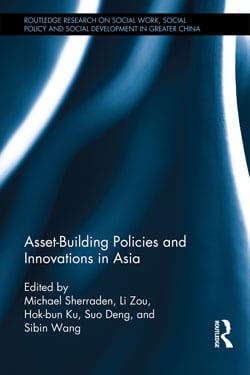
The book “Asset-Building Policies and Innovation in Asia” – a valuable resource for students and scholars of Asian social policy – is now available in paperback.
Host Organisation Perspectives of Volunteer Traits: Implications for Selection and Training
Barton, S., Tucker, B., & Lough, B. J. (2017). Host organisation perspectives of volunteer traits: Implications for selection and training. In N. T. Tan, S. Chan, K. Mehta, & D. Androff (Eds.), Transforming society: Strategies for social development from Singapore, Asia and around the world (pp 214–228). London, United Kingdom: Routledge.
Update: Financial Capability Month
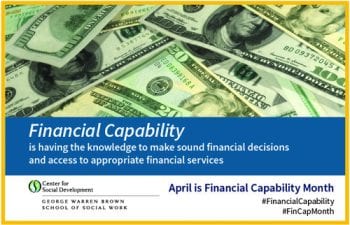
Financial Capability and Asset Building for All is one of the 12 Grand Challenges for Social Work and a growing practice in the social work profession. The Center for Social Development is committed to working with its partners to increase the financial capability of individuals, families, and communities across the globe!
What It Means to Be a Social Worker: Her World Woman of the Year Acceptance Speech
Nair, S. (2017, February). What it means to be a social worker: Her World Woman of the Year acceptance speech (CSD Perspective No. 17-12). St. Louis, MO: Washington University, Center for Social Development. https://doi.org/10.7936/K7BZ65H2
Symposium highlights social justice aspects of climate change
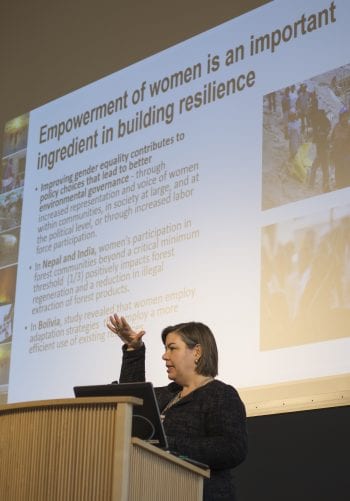
More than 130 people attended the international symposium “People and Climate Change: Vulnerability, Adaptation, Social Justice” on November 18 at the Brown School.
CSD research informs New York City’s new child savings accounts

The mayor of New York has announced a new child savings account to help thousands of New York City public school children save for college. City officials relied on research from the Center for Social Development to develop the three-year pilot program, which starts next fall.
People and Climate Change: Vulnerability, Adaptation, Social Justice
November 18, 2016, Brown School of Social Work
‘People and Climate Change’ registration closing soon

International experts on flooding, drought, extreme heat, land change and more will gather for a symposium on Friday, November 18, at the Brown School of Social Work.
CSD hosts seminar for visitors from South Korea
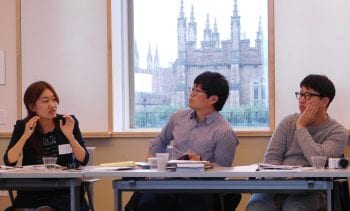
The Center for Social Development hosted a seminar this month for social workers and others from South Korea, part of a larger training program focused on developing financial capability for Korean youth.
Bonn meeting focuses on building community resilience
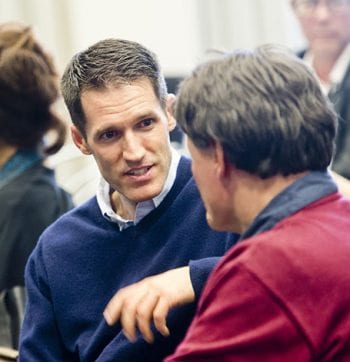
Benjamin Lough, PhD, faculty director of International Service for the Center for Social Development, presented at the Conference for International Volunteer Cooperation Organizations this month at the United Nations Campus in Bonn, Germany.
CSD celebrates, highlights global partners’ work in Asia, Africa

We are pleased to share news from and highlight ongoing collaborations with our global partners the Centre for Social Development Asia, at the National University of Singapore, and the Centre for Social Development in Africa, at the University of Johannesburg.
Older Adults in Community: Capacities & Engagement for Aging-in-Place
February 23-24, 2015, National University of Singapore
New book explores asset building in Asia
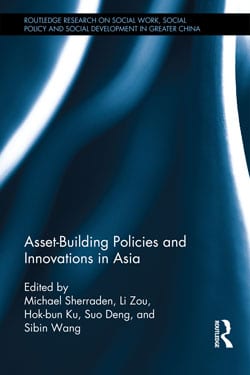
Asian scholars, practitioners and policymakers share lessons about asset-building policies in Asia and chart the future in the new book “Asset-Building Policies and Innovations in Asia.”
Next Age Institute launches

Washington University in St. Louis (WUSTL) and the National University of Singapore (NUS) have established the Next Age Institute, an international partnership to study, design and test social innovations.
New book provides in-depth look at asset building in Asia, conversations continue
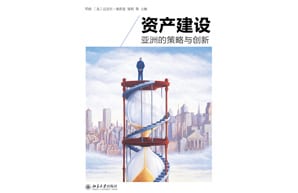
The Center for Social Development (CSD) at Washington University in St. Louis recognizes that asset-building policies in Asia offer important lessons in lifelong wealth and retirement security. International interest in these policies, particularly regarding aging populations, has prompted a book published in Chinese and one forthcoming in English.
Special double edition focuses on the productive engagement of older adults
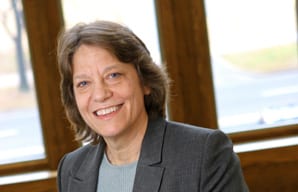
In a special double edition of Ageing International published this year, CSD’s Nancy Morrow-Howell, PhD, and Ada C. Mui, PhD, of the Columbia University School of Social Work discuss the productive engagement of older adults.
Experts converge on Beijing to discuss lifelong asset building
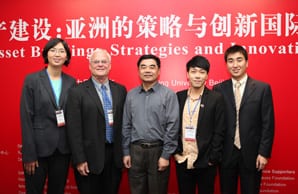
The Center for Social Development at Washington University in St. Louis partnered with Peking University and Hong Kong Polytechnic University to host a conference on strategies and innovations for asset building. This conference, held at Peking University in mid-November, reviewed research on asset building initiatives, a growing interest throughout Asia.
Lifelong Asset Building: Innovations and Strategies in Asia
November 16-18, 2012, Beijing, China
Conference draws experts from across Asia to discuss and develop asset building strategies

The Conference on Lifelong Asset Building: Strategies and Innovations in Asia, taking place this weekend in Beijing, will harness the experiences and brainpower of leading scholars, policy makers, practitioners, corporate leaders and funders from around the world.
At conference, Chinese, Americans share best practices on productive aging
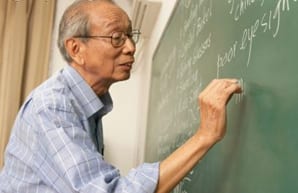
Population aging is a major concern across the globe, and nowhere is the challenge more daunting than in China. Whereas the United States currently has an estimated 36 million seniors age 65 and older, China already has 208 million seniors (defined in that country as age 60 or older).
As China faces challenges of aging population, new book offers insights, innovations
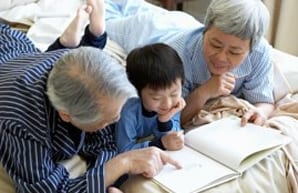
As the global population ages, the concept of “productive aging” offers a new perspective on meeting the challenges of an aging society. In contrast to conventional views of aging, “productive aging” views older adults as participants in and contributors to social development, rather than passive recipients of services.
Conference on productive aging in China to be held at Peking University
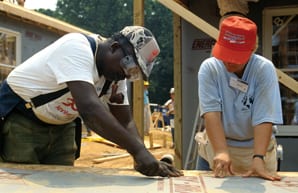
In August, over 300 gerontology scholars from mainland China, the US, Japan, Taiwan, Hong Kong, and Singapore as well as governments officials and practitioners from the China National Committee on Aging and the Ministry of Civil Affairs will come together at Peking University to discuss strategies to address population aging.
Graying world population sparks need for policies and programs that support productive aging
Worldwide, people aged 60 and above will comprise 13.6 percent of the population by 2020, and 22.1 percent of the population by 2050. China is the most rapidly aging country with older adults making up 13 percent of their population.
Innovations on forefront of Center for Social Development’s research on international volunteer service as Peace Corps Marks 50th anniversary
Although 50 years have passed since the founding of the Peace Corps and international service is currently growing worldwide, little rigorous research has been conducted on its impacts.
Emerging Perspectives on International Volunteerism in Asia [Slides from Forum Research 2010]
Brassard, C., Sherraden, M. S., & Lough, B. J. (2010, October). Emerging perspectives on international volunteerism in Asia. Slides from the Forum Research 2010 presentation given at the 2010 annual conference of International Volunteer Cooperation Organisations, Singapore.
Presentations in Asia underscore international interest in assets and social policy
CSD director Michael Sherraden and Margaret Sherraden, CSD research professor, were in high demand when they spent the fall semester of 2009 in Asia.
Emerging Perspectives on International Volunteerism in Asia

International Service
Our project examines challenges and emerging perspectives in international volunteerism in Asia through an online survey and in-country interviews.
CSD co-sponsors productive aging conference
In August 2009, international gerontology scholars gathered in China to address the challenge of initiating research and policy innovations that will support older adults in being actively engaged and harness their contributions for the betterment of families, communities, and society.
Productive Aging in China

Productive Aging
China’s growing older population includes many who are healthy and who want to be engaged. Their contributions are crucial for China’s social and economic development.
Parental Assets and Children’s Educational Outcomes
Loke, V., & Sacco, P. (2009). Parental assets and children’s educational outcomes (CSD Working Paper No. 09-17). St. Louis, MO: Washington University, Center for Social Development.
Building Assets From Birth: A Global Comparison of Child Development Account Policies
Loke, V., & Sherraden, M. (2008). Building assets from birth: A global comparison of Child Development Account policies (CSD Working Paper No. 08-03). St. Louis, MO: Washington University, Center for Social Development.